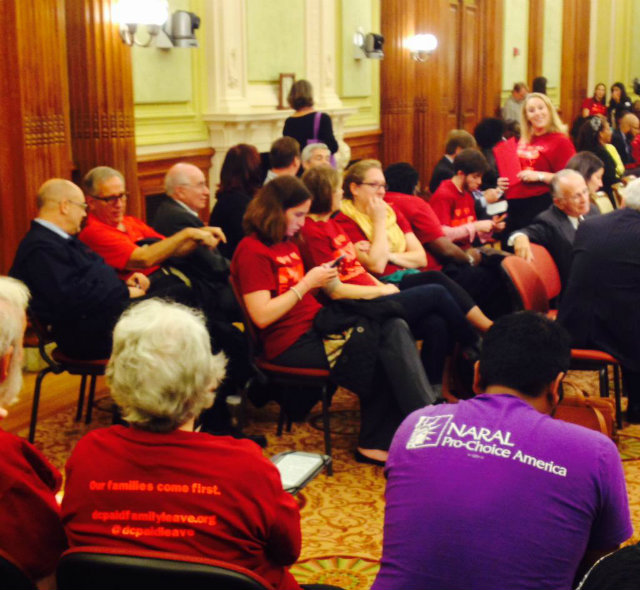D.C. considering 16 weeks paid leave for parents, caregivers
Despite the prevalence of these caregiving challenges, only 12 percent of all private-sector workers have access to paid family leave through their employers.
And, if the proposed leave policies are passed, “we are going to attract the best workers, and we are going to have the most productive workers because… if you can give people the time and the ability to address the needs of their family, they’ll be more loyal workers and more productive workers and I think that’s going to help the District economy”.
The legislation would more than double the length of any paid-leave program in the country.
Legislation being introduced Tuesday would allow nearly all D.C. employees to use the time to bond with an infant or adopted child, to recover from an illness, to recuperate from a military deployment or to care for an ill family member.
The bill would be inclusive of all families, no matter their marital status or sexual orientation. Federal government workers (who live in D.C.) and D.C. residents who work elsewhere would contribute personally to the fund.
Who would pay for it: Benefits would be paid out of a fund managed by the city.
During their leave, employees would be paid 100% on the first $1,000 of their weekly wages, plus 50% on their weekly wages above that amount.
Advocates say they do not yet have know how much the bill would cost employers, but that an estimate will be produced by the Office D.C. Chief Financial Officer as the measure moves its way through the Council.
The D.C. Chamber of Commerce is pushing back against the proposal. The group warned that an entirely employer-funded family leave program “would be unprecedented and make the District of Columbia dangerously uncompetitive”. Currently, the maximum benefit is six weeks of partial paid leave in New Jersey and California.
All D.C. employers would be required to pay into the fund depending on their size.
Silverman points out that mandatory paid family leave is something “almost every industrial country in the world does except for the United States”.
“With this legislation, we once again position D.C.as a national leader on policies that bolster our families, workers, and employers”.
Silverman and council member David Grosso, independent, who pushed the measure for months behind the scenes, recently attended a symposium led by the Labor Department where the District’s efforts were lauded for helping to “push the needle” on family leave law.
“In D.C. we have been a leader on paid sick days, on raising the minimum wage, and providing paid family leave for government employees”, he says. As a result, many workers are forced to choose between their paycheck or even the security of their jobs and caring for a sick loved one.








